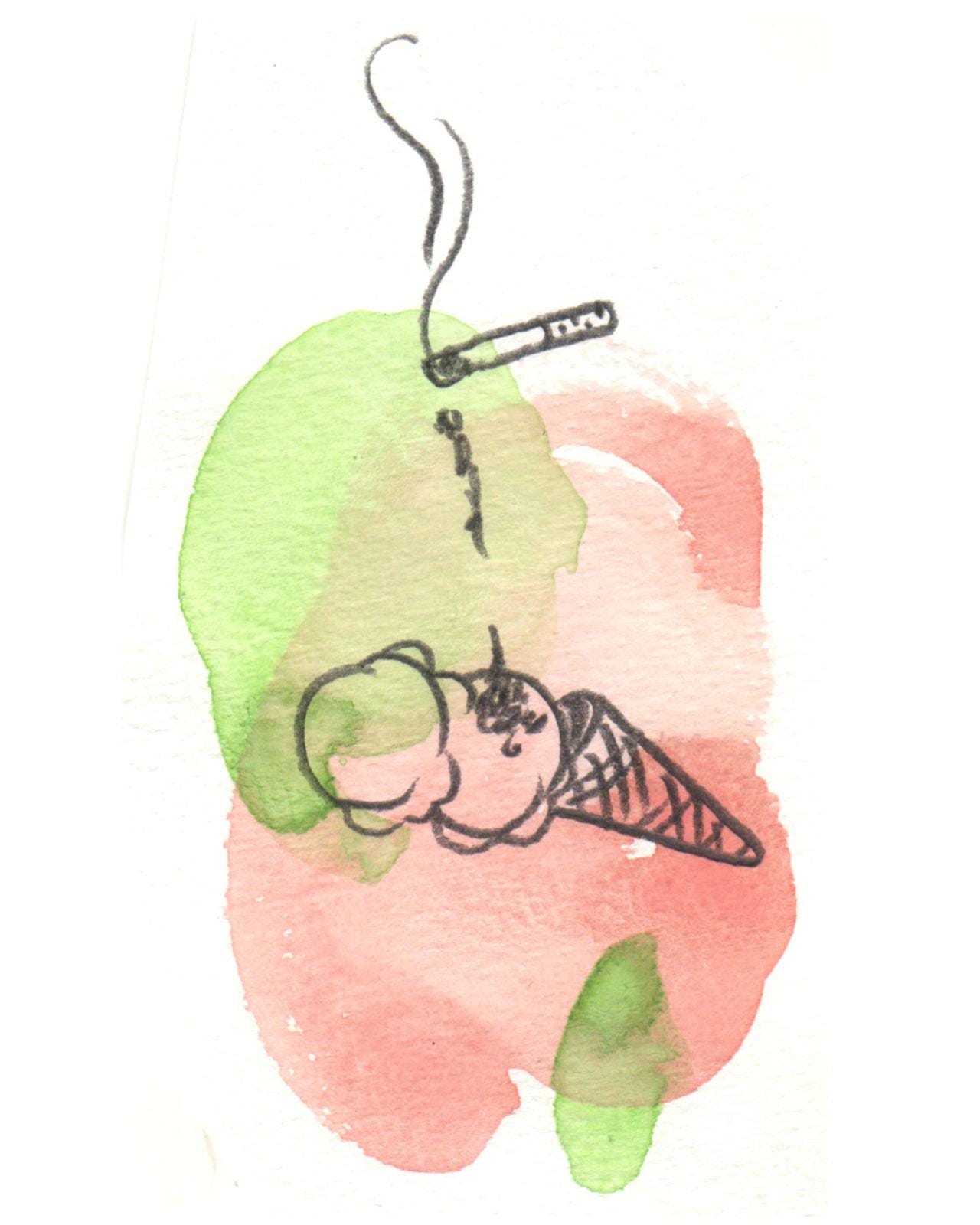Sundae Girls
If you have to work in the food industry, you want it to be in an ice cream parlor, right...right?

Illustration by Robyn Jordan
My first and only foray into food service was at a yuppie ice cream parlor tucked into the parking lot of a working class strip mall. Most of my preppy co-workers had been recruited from a suburban private girls school. I was a public school truant who’d wandered in off the street — a cool loser who wanted everyone to believe I’d already figured out who I was and what I wanted to be.
Regardless of our respective pedigrees, we were told we’d been selected from a large and competitive applicant pool. In the weeks leading up to the grand opening, the district manager stood by with her scale and stopwatch, judging our practice scoops, which had to be uniform, and our waffle cones, which had to be hand-folded. Those who passed muster were issued stiff red aprons and shiny square spatulas, and trained to justify the exorbitant prices — nearly double what the local Baskin-Robbins charged — and to push the most exotic and expensive toppings.
I don’t know what kind of…
Keep reading with a 7-day free trial
Subscribe to Narratively to keep reading this post and get 7 days of free access to the full post archives.



